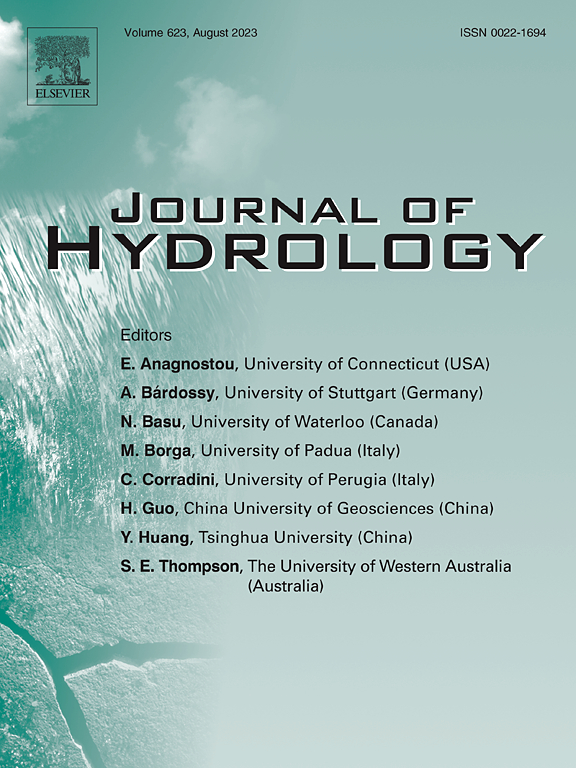岩溶管道拓扑结构对蓄水变化估算精度的影响
IF 6.3
1区 地球科学
Q1 ENGINEERING, CIVIL
引用次数: 0
摘要
本研究系统研究了岩溶管道拓扑结构变化对岩溶储水变化(KWSV)估算精度的影响。岩溶管道作为地下水的主要通道,在非均质含水层中控制着地下水的流动动态,影响着水资源评价的准确性。我们建立了一个耦合等效多孔介质-管道地下水流动数值模型来模拟喀斯特含水层晚期典型的管道拓扑变化。选取两个关键拓扑参数——顶点度和分支导管角来表征结构变化。采用指数拟合的方法分析了不同管道结构下的回潮特性。通过与拟合结果的对比,阐明了管道拓扑结构调节地下水动态和影响KWSV估算精度的机制。本研究结果为提高岩溶地下水资源评价的可靠性提供了重要的见解,并有助于岩溶水文研究的理论进步。本文章由计算机程序翻译,如有差异,请以英文原文为准。
Effect of karst conduit topological structure on the estimation accuracy of water storage variation
In this study, we systematically investigated how changes in the topological structure of karst conduits affect the accuracy of karst water storage variation (KWSV) estimation. As primary groundwater pathways, karst conduits significantly control groundwater flow dynamics and influence water resource assessment accuracy, especially in heterogeneous aquifer systems. We developed a coupled equivalent porous medium–conduit groundwater flow numerical model to simulate conduit topology variations typical of late-stage karst aquifer evolution. Two critical topological parameters—vertex degree and branch conduit angle—were selected to represent structural variations. Spring flow recession data were analysed using exponential fitting methods to characterize the recession behaviours under varying conduit structures. By comparing simulated spring recession curves with fitted results, we clarified the mechanisms by which conduit topology regulates groundwater dynamics and influences KWSV estimation accuracy. Our findings provide essential insights for improving the reliability of karst groundwater resource assessments and contribute to theoretical advancements in karst hydrology research.
求助全文
通过发布文献求助,成功后即可免费获取论文全文。
去求助
来源期刊

Journal of Hydrology
地学-地球科学综合
CiteScore
11.00
自引率
12.50%
发文量
1309
审稿时长
7.5 months
期刊介绍:
The Journal of Hydrology publishes original research papers and comprehensive reviews in all the subfields of the hydrological sciences including water based management and policy issues that impact on economics and society. These comprise, but are not limited to the physical, chemical, biogeochemical, stochastic and systems aspects of surface and groundwater hydrology, hydrometeorology and hydrogeology. Relevant topics incorporating the insights and methodologies of disciplines such as climatology, water resource systems, hydraulics, agrohydrology, geomorphology, soil science, instrumentation and remote sensing, civil and environmental engineering are included. Social science perspectives on hydrological problems such as resource and ecological economics, environmental sociology, psychology and behavioural science, management and policy analysis are also invited. Multi-and interdisciplinary analyses of hydrological problems are within scope. The science published in the Journal of Hydrology is relevant to catchment scales rather than exclusively to a local scale or site.
 求助内容:
求助内容: 应助结果提醒方式:
应助结果提醒方式:


